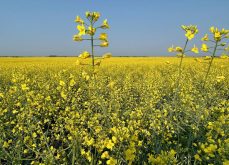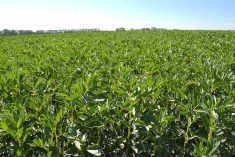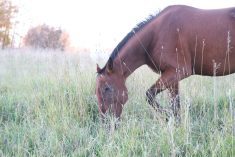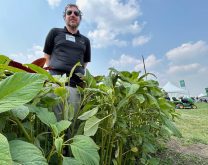Helping a family business flourish over four generations is a unique challenge. That’s the opportunity presented to Ryan and Rachel Kemp, who operate Kemp Honey just outside of High Prairie. Ryan’s great-grandfather first started the business by keeping bees in southern Ontario. His father and mother moved to their current operation in High Prairie in the mid-1970s.
Rachel and Ryan now operate the farm along with Ryan’s brother Tyson, Ryan’s parents, and a few hired hands. The couple’s children, Colten, 10, and Conner, 7, are also an active part of the family business.
Read Also

AgSphere cultivates new era for agri-food innovation
A new Calgary-based hub seeks to join universities, investors, multinationals and start ups to spur cutting-edge advances in farm-to-fork sector.
Rachel, who grew up on a farm near McLennan, had no knowledge of beekeeping before meeting Ryan. As a way of diversifying their operation, Rachel started selling and marketing her own body care products using beeswax and honey. “It was my way of contributing to the business,” she says.
Rachel began by finding recipes in library books and online and was eventually able to create her own recipes. Products were first available for sale in 2001. She initially created the body care products for herself and her friends and then begin selling them and offering them in other locations.
“At first I just looked up places online and picked up the phone,” says Rachel. Once people used her products, business took off and people were soon contacting her to get the products into their stores.
A Peace Country marketing group called the Learn Agri-Food network helped her develop her marketing strategy. Kemp Honey body products are now available in Dawson Creek, Fort St. John, Rycroft, Beaverlodge, Grande Prairie, Slave Lake and Spruce Grove. The products are often labelled in such a way that they can be identified as a Peace Country product.
Kemp Honey body products include bee butters and lotions, as well as propolis, lip balm and lavender balms. Many of the body butters are sold in solid stick form, so they can be easily applied by people who may have limited mobility in their hands due to arthritis.
Rachel emphasizes the natural aspects of the products, and their use for people with sensitive skin. “I find that I don’t react to the products, since they have no synthetic products or artificial fragrances,” she said.
TRADITIONAL HONEY AS WELL
In addition to the body care products, the family still runs a more traditional honey operation. The family generally fixes and builds equipment in the winter, and starts unwrapping their hives in the middle of April. Hives are overwintered outside in the Peace Country and are not moved to other areas during the season. Before the year starts, the bees are checked and losses tabulated. The bees are fed, medicated and new queens are brought to the hive before the start of June.
If the hives are strong enough, they are split to increase numbers during June.
Empty boxes are put out for the bees in July, and the bees make honey for the entire month. The Kemps then start extracting honey from the middle of July until the end of August. The bees are given a final treatment in mid-October, and are then wrapped up and put in the fields to overwinter until the next year.
The bees produce honey from alfalfa, clover and canola. Clover honey is light in appearance and has a delicate, mild taste. The Kemps produce a dandelion honey, which the bees produce for a short time each spring. The dandelion honey is flavourful, with a rich yellow col-our. During production, hives are often placed in other peoples’ fields so area farmers can get the pollination benefits.
As fourth-generation bee keepers, the Kemps do face some challenges that their parents did not, and have to cope with diseases and high winter losses. High expenses and the low price of honey can also be impediments.
However, the Kemp Honey brand has built up a strong client base. The Kemps have regular customers and often ship honey all over the country. Many regulars come through during hunting excursions and families make their annual stop at the Kemp Honey store in the summer.















